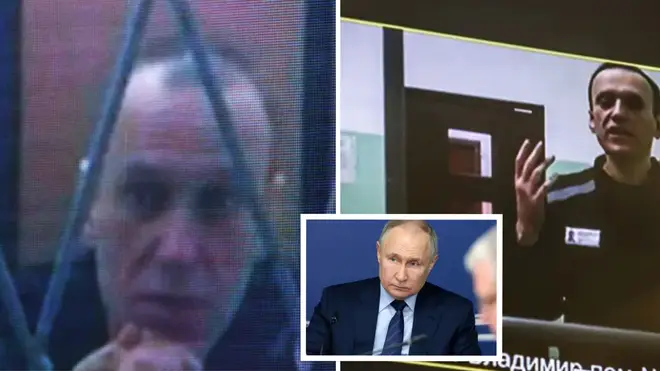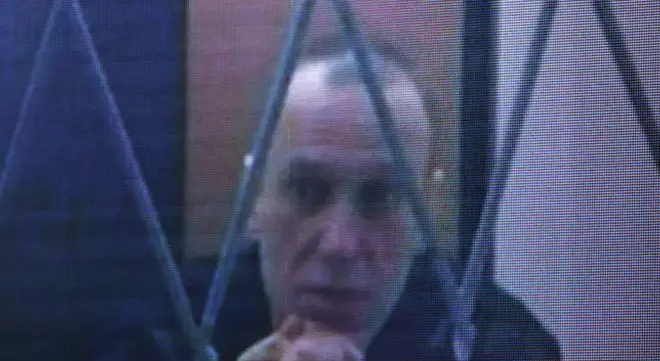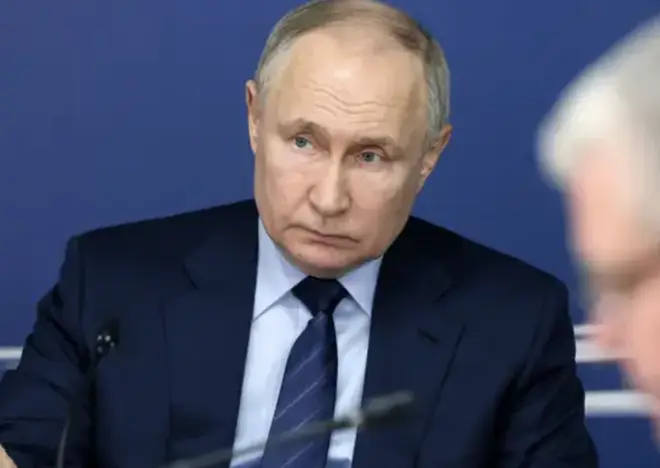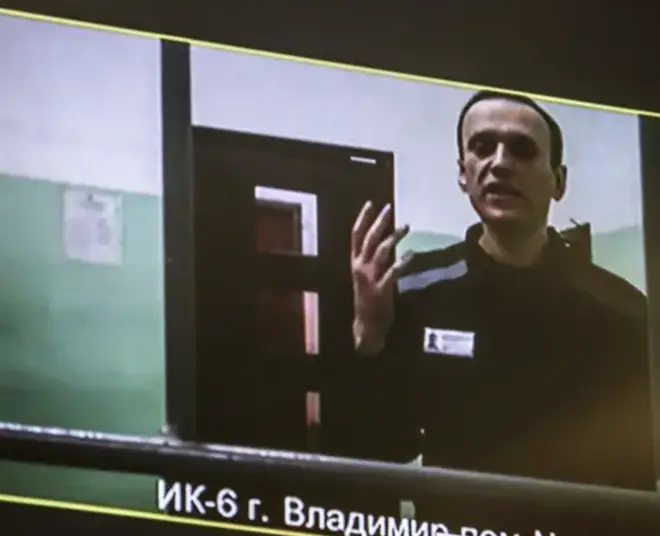
Matt Frei 10am - 12pm
22 February 2024, 16:54 | Updated: 22 February 2024, 17:04

The mother of Alexei Navalny has been shown her son’s body in a morgue - but says Russian authorities are trying to pressure her into allowing him to be buried in ‘secret.’
Lyudmila Navalnaya said in a video released online she had been brought to a morgue on Wednesday night.
She signed a death certificate which reportedly stated he died of natural causes.
She said she was being ‘blackmailed’ by Kremlin officials who are refusing to hand over his body.
They want to set the exact place, time and manner of his burial, she said.
She added: "They want to take me to the outskirts of the cemetery to a fresh grave and say: 'Here lies your son.'

"Looking into my eyes, they say that if I do not agree to a secret funeral, they will do something with my son's body.
"Investigator Voropaev openly told me: 'Time is not on your side, the corpse is decomposing.'"
Navalny died in a prison colony on 16 February. His wife has claimed he was killed on the orders of Vladimir Putin.
Yesterday it was claimed that Navalny was likely killed by a punch to the heart, a technique once taught to KGB officers, according to a Russian prisons campaigner.
Opposition campaigner Navalny, whose death in an Arctic prison was announced last Friday, would first have been weakened by being exposed to the elements for hours, according to Vladimir Osechkin, founder of the human rights group Gulagu.net.

Reports emerged after Navalny's death that he was bruised, but his family have not been able to see his body. No official cause of death has been given, although some media reports suggested he had a blood clot.
Osechkin said that the Putin critic was likely kept outside in open air solitary confinement, where temperatures could go as low as -27C, for two and a half hours.
He told the Times: "I think that they first destroyed his body by keeping him out in the cold for a long time and slowing the blood circulation down to a minimum.
“And then it becomes very easy to kill someone, within seconds, if the operative has some experience in this.
Citing a prisons system source, Osechkin said that the bruising was consistent with the one-punch technique.

“It is an old method of the KGB’s special forces divisions, he said. "They trained their operatives to kill a man with one punch in the heart, in the centre of the body. It was a hallmark of the KGB.”
Navalny's widow Yulia Navalnaya has said she thought her husband's death was caused by Novichok - with which he was poisoned in 2020 - but Osechkin said this was unlikely.
He said: “It’s possible of course, but when someone is under the control of the prison system there are many options as to how to kill them.
"Novichok would leave a trace in his body and would lead directly back to Putin, given he has tried it once before."
Osechkin said that the order to kill Navalny is likely to have come directly from the Kremlin.
He said: "From what I know from my sources, it was a special operation that had been prepared several days in advance,” he said.
"It was a command from Moscow because without Moscow it would not have been possible to dismantle the cameras in the way that they did."
Navalnaya has vowed to "find out who exactly and how exactly" her husband was killed.
She added: "We will name names and show faces. The most important thing we can do for Alexei and for ourselves is to continue to fight."
Meanwhile activist and anti-corruption campaigner Bill Browder has claimed that Putin wants to wipe out at least 12 people in the UK following Navalny's death.
“He will embark on a killing spree which will include all enemies in the UK,” he told the Mirror.
Russia's war machine has been slapped with 50 new sanctions by the UK as the second anniversary of the Ukraine invasion approaches.
Announcing the new measures, Foreign Secretary Lord David Cameron said Britain would continue to back Kyiv "for as long as it takes".
The Foreign Office said the sanctions would crack down on those supplying Russia's military with munitions such as rocket launch systems, missiles and explosives.
The sanctions also target key sources of Russian revenue, clamping down on metals, diamonds and the energy trade, in a move designed to cut off funding for President Vladimir Putin's war efforts from every angle, officials said.
Russia launched its full-scale invasion on February 24 2022, with the bloody incursion by the Kremlin due to enter into a third year on Saturday.
The conflict has largely grinded to a stalemate and Ukrainian President Volodymyr Zelensky has publicly urged the West to provide more weapons or risk emboldening Russia's forces.